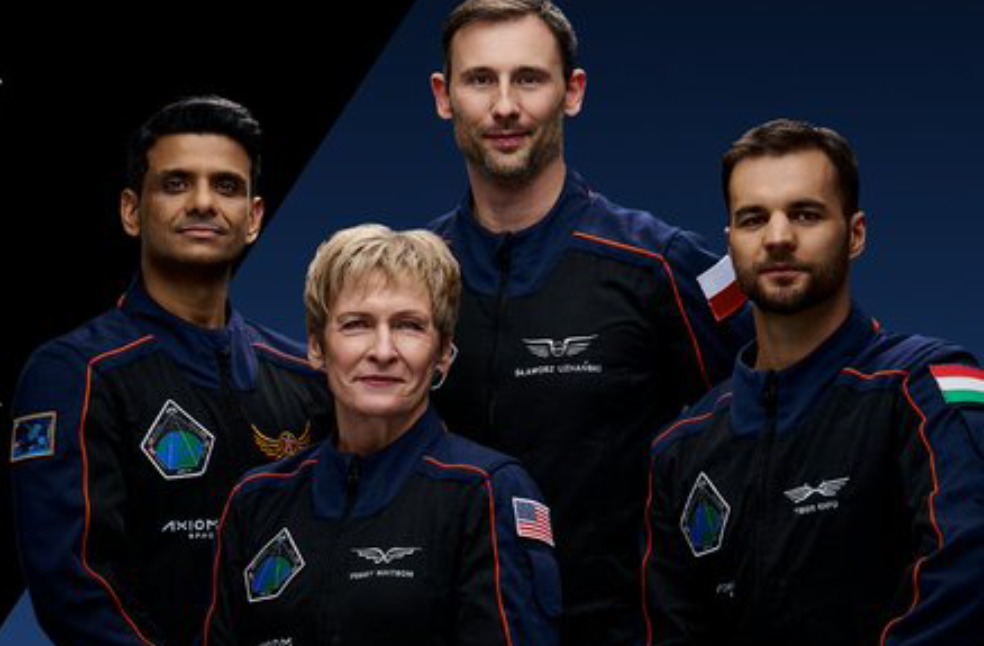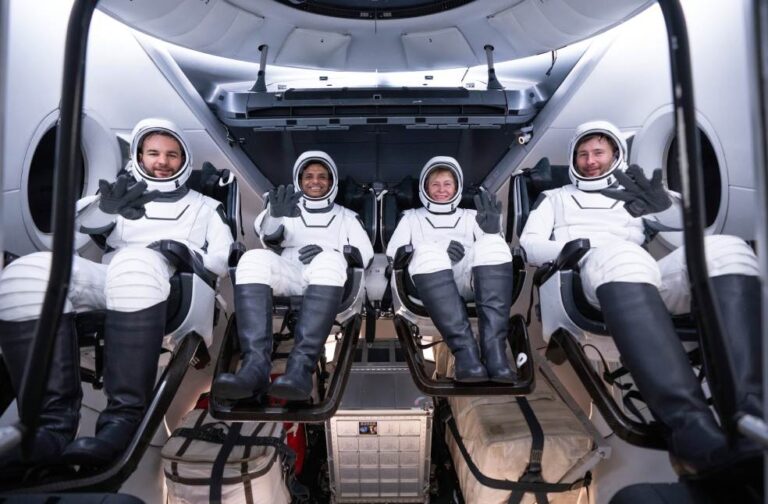Florida: An Indian astronaut, Shubhanshu Shukla, is all set for the Ax-4 Mission to the International Space Station (ISS). Shubhanshu Shukla of the Indian Air Force will pilot the Axiom Mission 4 (Ax-4), scheduled to launch from NASA’s Kennedy Space Center in Florida on 10 June at 08:22 EDT.
The Ax-4 mission marks a major milestone as Shukla will become only the second Indian ever to travel to space and the first to visit the ISS. The last Indian to go to space was cosmonaut Rakesh Sharma, who flew aboard a Russian Soyuz in 1984.
Ax-4’s crew comprises four members from different countries, led by veteran NASA astronaut Peggy Whitson, who has commanded the ISS twice and completed ten spacewalks. Along with Shukla, the team includes Slawosz Uznanski-Wisniewski from Poland and Tibor Kapu from Hungary, both returning to space after more than 40 years.
Shukla’s role is crucial as pilot and second-in-command, assisting with spacecraft operations during launch, docking, undocking, and return to Earth. The crew has been in quarantine since 25 May, preparing thoroughly for the mission.

Describing his Ax-4 journey, Shukla said that, “It has been an amazing journey so far, but the best is yet to come. As I go into space, I carry not just instruments and equipment, I carry hopes and dreams of a billion hearts. I request all Indians to pray for the success of our mission.”
The two-week Ax-4 mission will see the crew conduct 60 scientific experiments aboard the ISS. Seven experiments are from India, including a key project investigating the effects of spaceflight on six varieties of crop seeds. This research aims to help grow crops in space for future missions.
ISRO Chairman V Narayanan said that the Ax-4 mission offers phenomenal benefits in training, exposure, and collaborative experiments. The Indian space agency has invested 5 billion rupees (£43 million) to secure Shukla’s seat.
This historic presence of an Indian astronaut in the Ax-4 Mission comes ahead of India’s ambitious human spaceflight programme, Gaganyaan, planned for 2027, and the country’s long-term goals of a space station by 2035 and a manned lunar mission by 2040.



